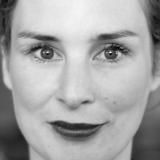We are facing an environmental crisis. Water pollution, air quality and soil fertility are just some of the environmental pressures on today’s world. To what extent is this crisis related to the current economic system we live by? To preserve and repair our natural environment, it seems various economic measures could be taken. Which ones could European governments, and perhaps the EU, take? How can markets be designed in such a way that they take into account the planet’s boundaries? Should firms start with pricing environmental damage in production processes? Or should governments introduce a tax on pollution? What is the role of consumers and civil society in this process? These questions – and more – will be discussed with economists Ann Pettifor and Julia Steinberger.


Please note: this episode will – by way of exception – not be live, but a broadcast of a recording that starts at 16.00 CEST. If you would like to participate at the time of recording, so that you can ask questions, you can use the ZOOM link above at 16:00. At 18:30, there won’t be an opportunity to ask questions any more.
About the speakers
Ann Pettifor is apolitical economist, author and public speaker. Her latest book, The Case for the Green New Deal, was published in 2019. Back in 2003, as editor of The Real World Economic Outlook (Palgrave Macmillan, 2003), she predicted an Anglo-American debt-deflationary crisis. This was followed in September, 2006 by my book predicting the Global Financial Crisis: The Coming First World Debt Crisis published by Palgrave. She is the Director of PRIME (Policy Research in Macroeconomics) a network of economists that promote Keynes’s monetary theory and policies, and that focus on the role of the finance sector in the economy. Together with Professor Victoria Chick, and Dr. Geoff Tily she co-authored PRIME’s radical analysis of 100 years of UK public debt and its impact, in The Economic Consequences of Mr. Osborne (July 2010).
Julia Steinberger researches and teaches in the interdisciplinary areas of Ecological Economics and Industrial Ecology. Her research examines the connections between resource use (energy and materials, greenhouse gas emissions) and societal performance (economic activity and human wellbeing). She is the recipient of a Leverhulme Research Leadership Award for her research project ‘Living Well Within Limits’ investigating how universal human well-being might be achieved within planetary boundaries. She is Lead Author for the IPCC’s 6th Assessment Report with Working Group 3. Before coming to the University of Leeds in 2011, Prof. Steinberger was a Senior Researcher at the Institute of Social Ecology in Vienna (SEC). She has held postdoctoral positions at the Universities of Lausanne and Zurich, and obtained her PhD from the Massachusetts Institute of Technology.
About the series

To protect the future of life on earth, we need to do more than just reimagine the economy—we have to change everything. One of the seminal thinkers of the program that helped ignite the US Green New Deal campaign, Ann Pettifor explains how we can afford what we can do, and what we need to do, before it is too late.

Towards a new market economy in Europe for future generations.












